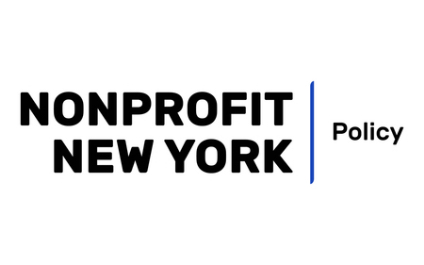Federal
IRS guidance on reclaiming transportation UBIT taxes paid
On January 21st, the IRS issued guidance designed to help nonprofits quickly get back the money they paid in 2018 and 2019 on the now-repealed tax on nonprofit transportation benefits: How To Claim a Refund or Credit of Unrelated Business Income Tax (UBIT) or adjust Form 990-T for Qualified Transportation Fringe Amounts. The guidance instructs nonprofits to file amended Form 990-Ts and write “Amended Return – Section 512(a)(7) Repeal” at the top so IRS officials will know what it is and what to do with it.
OMB proposes regulations to improve Uniform Guidance Indirect Cost Rules
The federal rules governing grants to nonprofits would be substantially improved under proposed revisions to the Uniform Guidance published January 22, 2020 by the U.S. Office of Management and Budget. Since 2014, various granting agencies have misinterpreted the OMB Uniform Guidance in ways that deny nonprofits their rights to be reimbursed for their costs. Most notably, the proposed revisions would clarify that all granting agencies paying nonprofits with federal funds – whether federal, state, or local governments, native tribes, or other nonprofits – must pay a nonprofit using the nonprofit's existing negotiated indirect cost rate. If the nonprofit does not have a negotiated rate, then the nonprofit controls the option either to negotiate its indirect cost rate or be paid a flat rate of 10 percent. This clarification of the rule would strengthen the guarantee that grantees receive reimbursement of indirect costs of at least 10 percent of their modified total direct costs (de minimis rate). In other changes, the proposed rules would provide greater flexibility under procurement standards, implement standard data elements across agencies and grants, promote the collection of data in machine-readable formats, and strengthen end-of-grant closeout procedures and enforcement. The public is invited to review the proposed regulations and submit comments by March 23, 2020.
IRS revises Form 1023 for applying for tax-exempt status; New electronic filing deadline
The IRS revised Form 1023, Application for Recognition of Exemption Under Section 501(c)(3), to allow electronic filing for the first time. Beginning January 31, 2020, applications for recognition of exemption on Form 1023 must be submitted electronically online at www.pay.gov. The IRS will provide a 90-day grace period during which it will continue to accept paper versions of Form 1023 (Rev. 12-2017). The required user fee for Form 1023 will remain $600 for 2020.
IRA Rollovers Unaffected by Recent Tax Changes
The spending and tax legislation approved by Congress in December included several changes to federal retirement law. One provision raises the age when individuals must start making minimum distributions from their individual retirement accounts (IRAs) from 70½ to 72 years of age. The tax law did not, however, alter the giving incentive known as the IRA charitable rollover. Individuals aged 70½ and older may still make tax-free distributions to nonprofits from their IRAs, even if they are not required to make distributions from their IRAs because they have not yet turned 72.
Proposed regulations to eliminate 501(c)(4) requirement to doclose significant donors.
On February 7th the IRS conducted a public hearing on proposed regulations to eliminate the requirement that 501(c)(4) social welfare nonprofits confidentially disclose the identities of their significant donors (For 990 Schedule B). The National Association of State Charity Official and, National Council of Nonprofits submitted comments in opposition to the proposed changes.
State charity officials weigh in on .org registry proposed sale
The National Association of State Charity Officials (NASCO) sent a letter expressing significant concerns about the proposed sale of the nonprofit Public Interest Registry to a private equity firm that would have “an obligation … to maximize profits for its” investors. NASCO’S letter lays out several problems with the sale of the .org registry, including the loss of transparency and public accountability. The letter itself does not halt the proposed sale, but it does show that state charity regulators have serious concerns about this transaction. The state charity officials join the growing list of entities who expressed objections to the proposed conversion of this nonprofit to a for-profit entity, including Nonprofit New York, the National Council of Nonprofits, the United Nations Human Rights Council and members of Congress.
State
Proposed state budget would require new donor disclosures for 501(c)(3)s. S7505/A9505,
Part UU would require nonprofits registered with the Charities Bureau under Art. 7-A of the Executive Law (ie. those that are registered to solicit charitable funds) to file their CHAR 500 (including the IRS 990 and all attachments) with the state Tax Department, which in turn will make the information public on its website. Consistent with longstanding principles of donor confidentiality, currently both the Charities Bureau and IRS strictly protect the donor information contained in Schedule B of the 990. Nonprofit New York and the Lawyers Alliance for New York circulated a legislative memo in opposition to several state legislators in Albany the week of February 3rd.
City
Updated City-level “State of the Sector” data
On February 6, 2020, Nonprofit New York, in collaboration with the Baruch Center for Nonprofit Management and Strategy released updated “state of the sector” data. There are currently 46,595 registered nonprofits in New York City. The top five nonprofit types are (in order of volume): religious, philanthropic and volunteerism, arts and culture, education, and human services. Nonprofits in New York City account for 16% of the private workforce.
